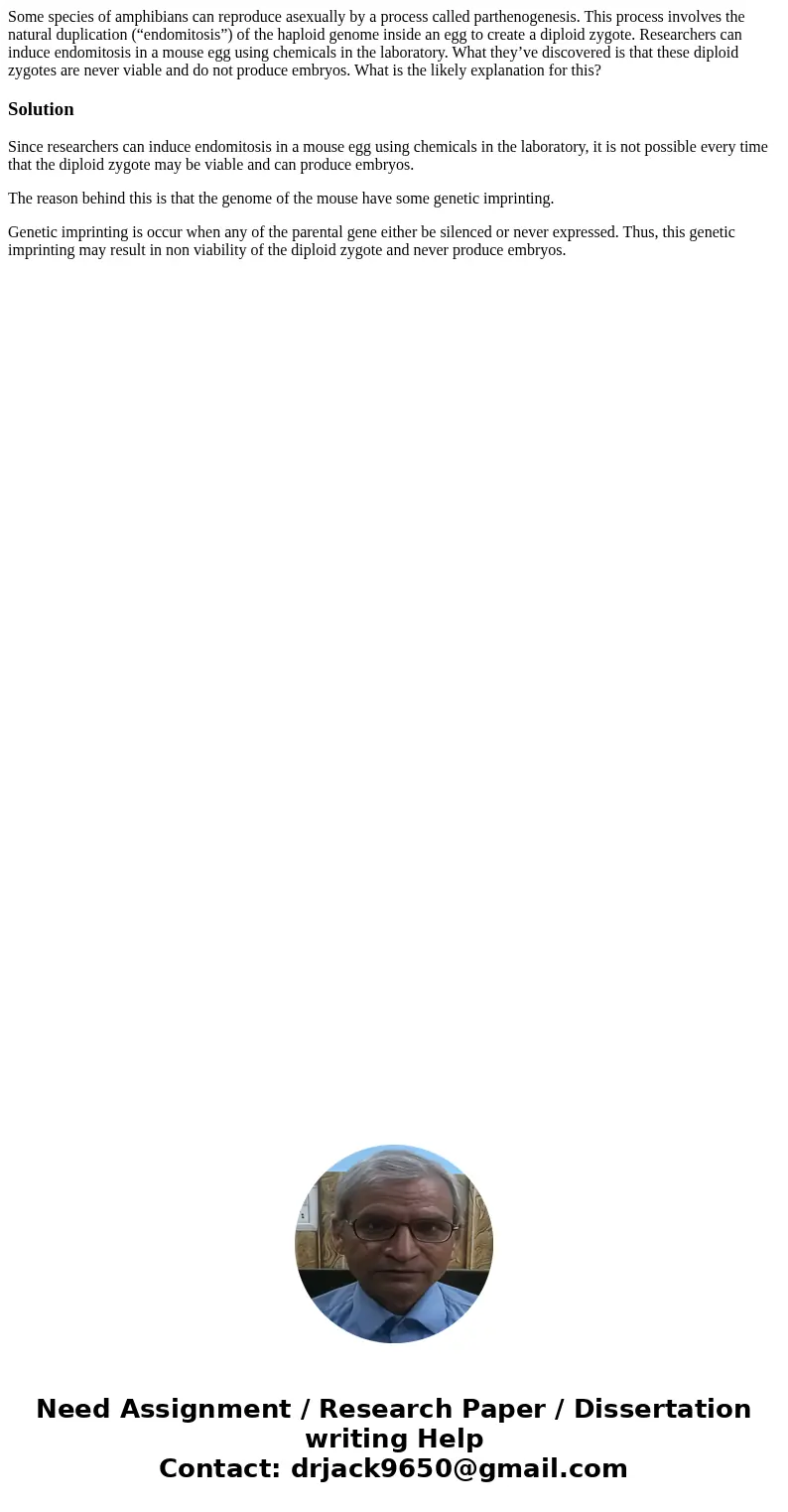Some species of amphibians can reproduce asexually by a proc
Some species of amphibians can reproduce asexually by a process called parthenogenesis. This process involves the natural duplication (“endomitosis”) of the haploid genome inside an egg to create a diploid zygote. Researchers can induce endomitosis in a mouse egg using chemicals in the laboratory. What they’ve discovered is that these diploid zygotes are never viable and do not produce embryos. What is the likely explanation for this?
Solution
Since researchers can induce endomitosis in a mouse egg using chemicals in the laboratory, it is not possible every time that the diploid zygote may be viable and can produce embryos.
The reason behind this is that the genome of the mouse have some genetic imprinting.
Genetic imprinting is occur when any of the parental gene either be silenced or never expressed. Thus, this genetic imprinting may result in non viability of the diploid zygote and never produce embryos.

 Homework Sourse
Homework Sourse